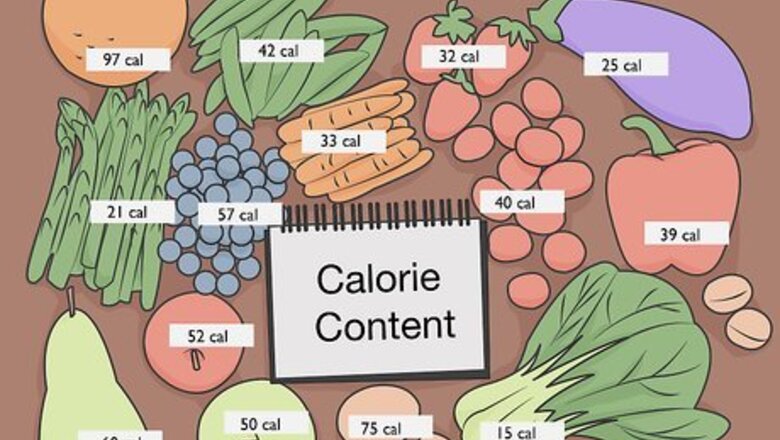
views
The Right Diet
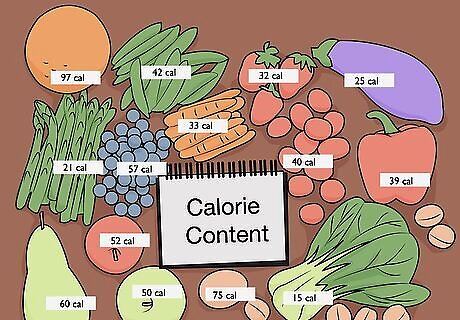
Keep your daily caloric intake close to 2,000 calories. Sticking to the recommended 2,000 calories per day is an important way to maintain a healthy bodyweight. Most nutritional recommendations are based around this daily calorie consumption. Get into the habit of counting the calorie content of all your meals and snacks to avoid overeating. You can use an app to help you calculate everything.
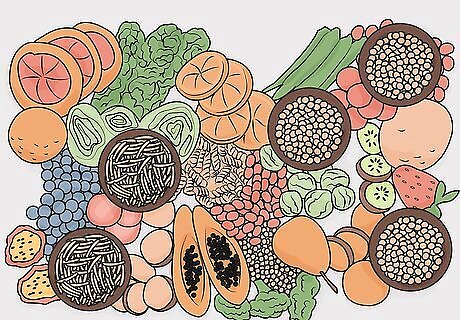
Include 7-10 fruit and vegetable servings in your diet every day. A plant-based diet is overall best for treating diabetes. Have at least 2 fruit or vegetable servings with each meal and add a few more servings with snacks throughout the day. A common trick to increase your plant consumption is taking a dinner plate and filling half of it with vegetables or fruits. Then the remaining space is for the rest of the meal.
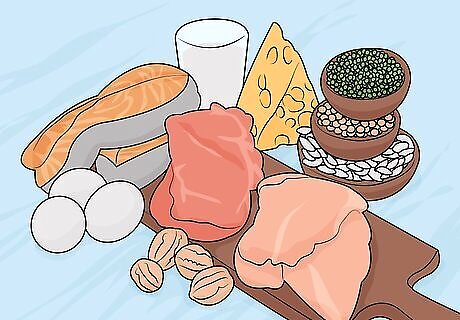
Get 15-20% of your daily calories from lean protein sources. In a 2,000-calorie diet, 300-400 of those calories should come from lean proteins. Good choices include chicken, fish, beans, nuts, seeds, soy, peas, and lentils. These protein sources have fewer saturated fats and chemicals than red meat. Fish is especially healthy because it contains omega-3 fatty acids. Try to have 2-3 fish servings per week.
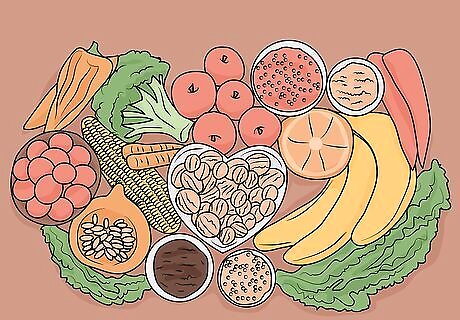
Consume 25-30 grams of fiber every day. High-fiber diets are effective for controlling diabetes, so make sure you get the recommended 25-30 grams every day. Eat plenty of leafy green vegetables, legumes, nuts, seeds, and whole grain breads for good natural fiber sources. You can also boost your fiber intake with dietary supplements, but doctors recommend getting as much as possible from your regular diet first.
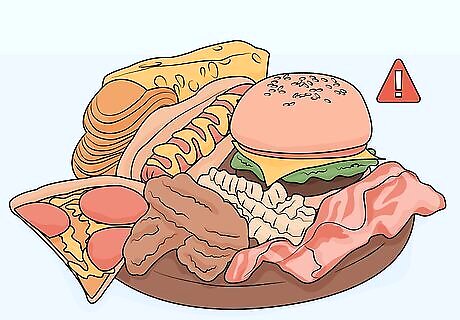
Limit the amount of fat you eat below 35% of your daily calories. Saturated and trans fats are generally harmful, so avoid processed, fried, or greasy foods. Instead, get your fats from healthier sources like fish, poultry, or dairy products. Your total daily fat intake shouldn't exceed 700 calories.
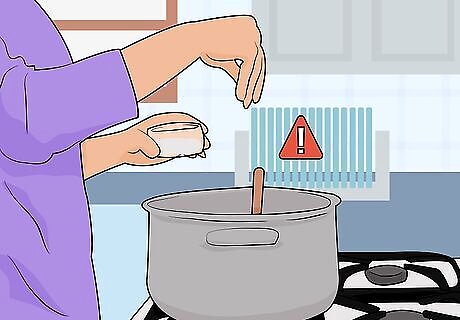
Keep your salt consumption below 2,300 mg daily. Salt increases your blood pressure and can make diabetes worse. Monitor your salt intake and consume no more than 2,300 mg each day. It’s tough to keep your salt intake below this level if you eat out often. Try to cook at home more and avoid adding salt to your meals.
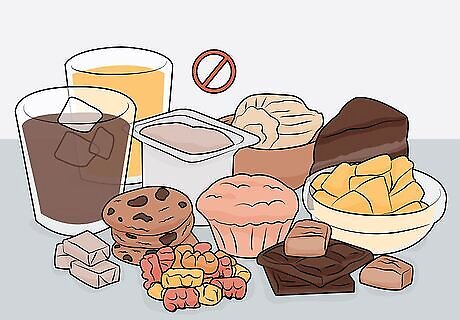
Eat no more than 25-35 grams of added sugar each day. Added sugars have a high glycemic index, meaning they cause your blood sugar to spike. Avoid sugary foods like dessert, soda, and candy to keep your blood sugar regulated. 25-35 grams of added sugar is a maximum, so the lower your sugar intake is, the better. Added sugars are different from natural sugars in foods like fruit. You don't have to limit natural sugars in your diet.
Lifestyle Remedies
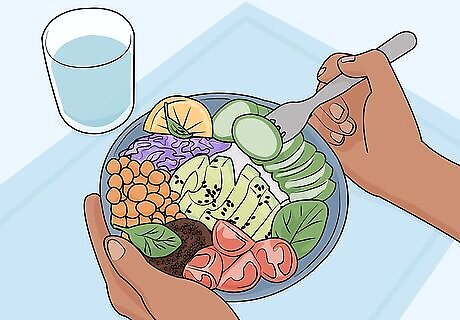
Maintain a healthy bodyweight. Being overweight can cause diabetes or make your symptoms worse. Talk to your doctor to find the ideal weight for you, then design a diet and exercise regimen to reach that.

Exercise for 30 minutes each day. Staying active is a great way to lose weight and improve your diabetes symptoms. Try to get at least 30 minutes of exercise 5-7 days per week for the best results. Aerobic exercises are best for diabetes, so focus on running, walking, biking, or swimming. Then you can mix in more strength-training exercises.

Reduce stress. While stress isn’t directly related to diabetes, it can raise your blood pressure and cause you to gain weight. Both of these can make your diabetes worse, so controlling your stress is a key part of your treatment. Try doing some relaxation exercises like meditation, deep breathing, or yoga. Enjoyable activities can also reduce your stress, so always make time to do some things that you like.
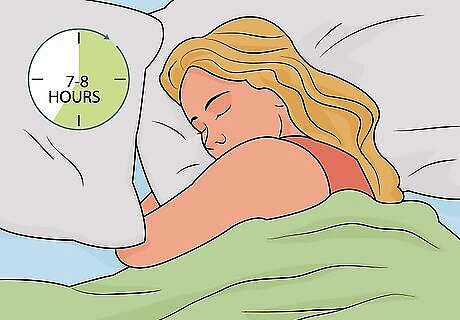
Try to sleep for 7-8 hours every night. Sleep deprivation increases your risk of diabetes, so do your best to sleep through the night. Go to bed early enough to get 7-8 hours of sleep during the night. If you have trouble falling asleep, try doing relaxing activities before bed like taking a bath or reading.
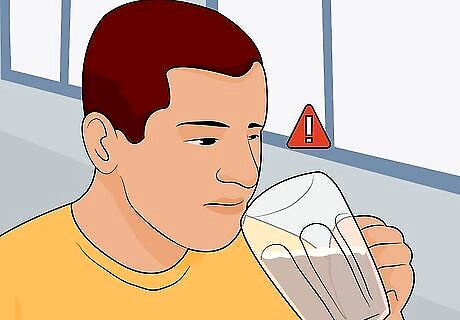
Drink alcohol in moderation. Limit your intake to 1-2 drinks per day to avoid negative results. If your diabetes is more serious, your doctor may recommend that you quit drinking alcohol altogether.
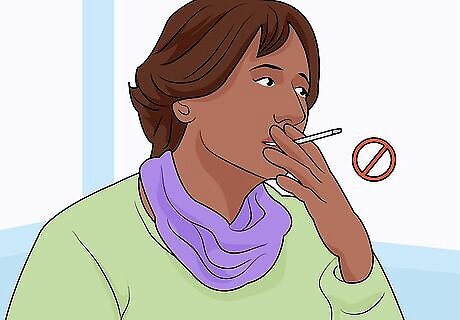
Quit smoking or don’t start at all. Smoking causes all kinds of health issues along with diabetes. It’s best to quit as soon as possible, or avoid starting altogether.
Unverified Herbal Treatments
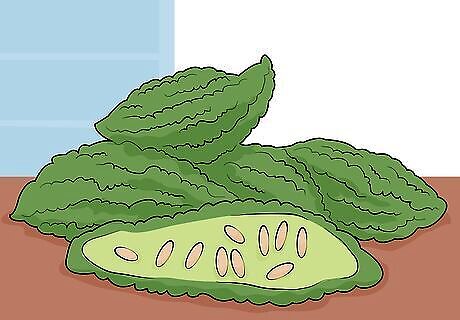
Eat bitter melon to regulate your blood sugar. This Asian plant might help control your blood sugar, and it’s used in many different countries to treat diabetes. The serving sizes vary, but eating 1 bitter melon per day is safe.
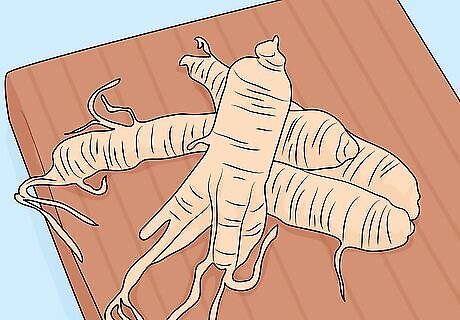
Use ginseng to lower your blood pressure and sugar. There is some evidence that ginseng has both effects, which would make it an effective diabetes treatment. More research is needed to confirm this though. 1-2 grams of raw ginseng daily is a common dosage.
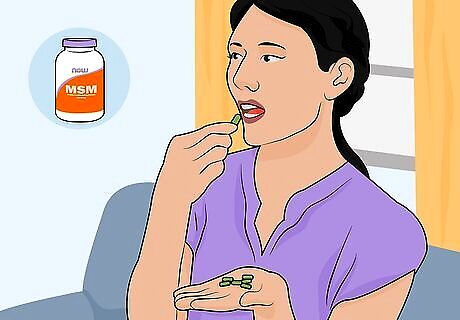
Try taking magnesium supplements. Magnesium might help relieve diabetes if you were suffering from a deficiency. Don't exceed 500 mg of magnesium daily unless your doctor directs you to. You can also get more magnesium naturally from leafy green vegetables, nuts, and whole grains.
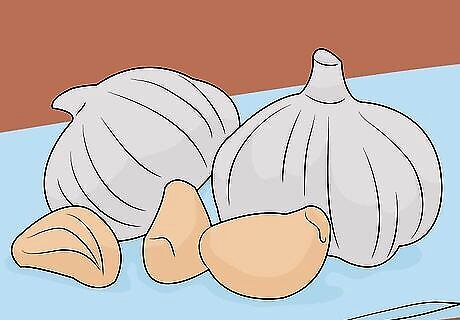
Lower your blood pressure with garlic. Garlic is a popular remedy for blood pressure control, so it could help improve your diabetes symptoms. Suggested garlic servings vary widely, from 100 mg per day to 1,500, so it's best to ask your doctor what the ideal dose is for you. You can use fresh garlic or garlic supplements for similar results.
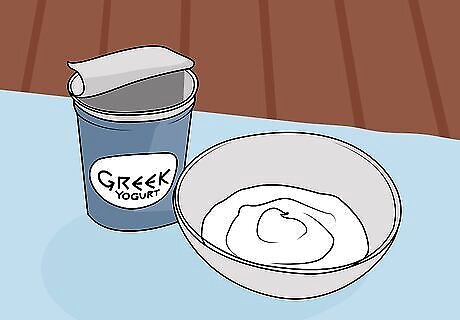
See if probiotics improve your symptoms. Probiotics might help control your blood sugar, so you can try taking some daily supplements to increase the healthy bacteria in your gut. Use them exactly as directed so you don't take too much. If you’d prefer to get probiotics from your diet, try to eat more fermented foods. Good sources include sauerkraut, tempeh, miso, kombucha, and Greek yogurt.

















Comments
0 comment